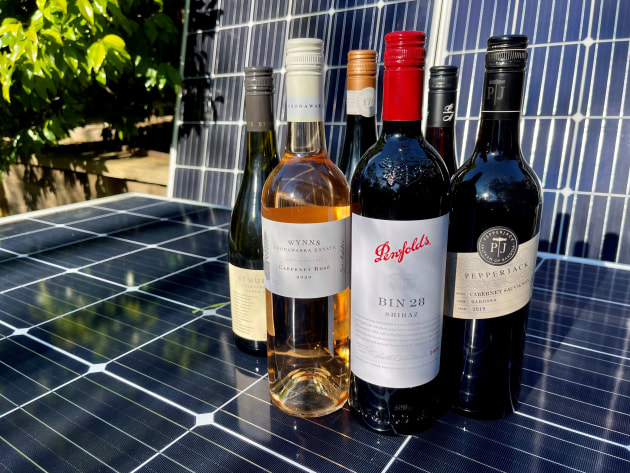Treasury Wine Estates (TWE) is one of the first wineries to join 323 companies from around the world in the RE100 initiative, switching to 100 per cent renewable electricity by 2024 across the company’s global operations.
RE100 is a global initiative led by the non-profit organisations Climate Group and CDP, using their combined US$6.6 trillion revenue to bring together international companies to build a green economy.
By 2024, all TWE’s wines including Penfolds; Wolf Blass; Pepperjack; Wynns; and Squealing Pig will be made using 100 per cent renewable energy.

TWE chief corporate services officer Kristen Gray said as the company is transitioning, it is also looking to improve energy efficiency and minimise energy use.
“We have more than 12,700 hectares of vineyards globally, so we understand the importance of managing and planning for the impacts of climate change – not only as a global premium wine producer but also as a responsible business that operates in communities all around the world.
“As we all work towards a cleaner world, we’re proud to be one of the early wine industry adopters to join RE100 alongside some of the world’s most influential businesses. We know that global warming is happening faster than previously predicted, which is why we have set the bold target for our global operations to be powered with renewable electricity by 2024,” said Gray.
RE100 Australian coordinator Jon Dee said it is logical for TWE to use solar energy to power its facilities since vineyards use the sun to make the grapes for wine.
“This plan will help TWE to lead the way in addressing climate change. When consumers drink these premium wines, they’ll know that the sun is helping TWE to grow and produce their wine in a cleaner and greener way,” said Dee.
TWE’s switch to renewable energy is part of its zero carbon emissions (Scope 1 and 2) goal by 2030.
Gray said 75 per cent of the company’s electricity makes up of its Scope 1 and 2 emissions and they have globally started to incorporate solar panels and solar hot water to begin the transition.
“We’re committed to continuing to identify, trial, and implement opportunities to improve the energy efficiency and emissions profile of our business and to ensure our efforts are informed and supported by industry-led expertise,” she said.
Climate Group head of RE100 Sam Kimmins added that the initiative calls for positive change and they encourage all large-scale businesses to join the cause.






